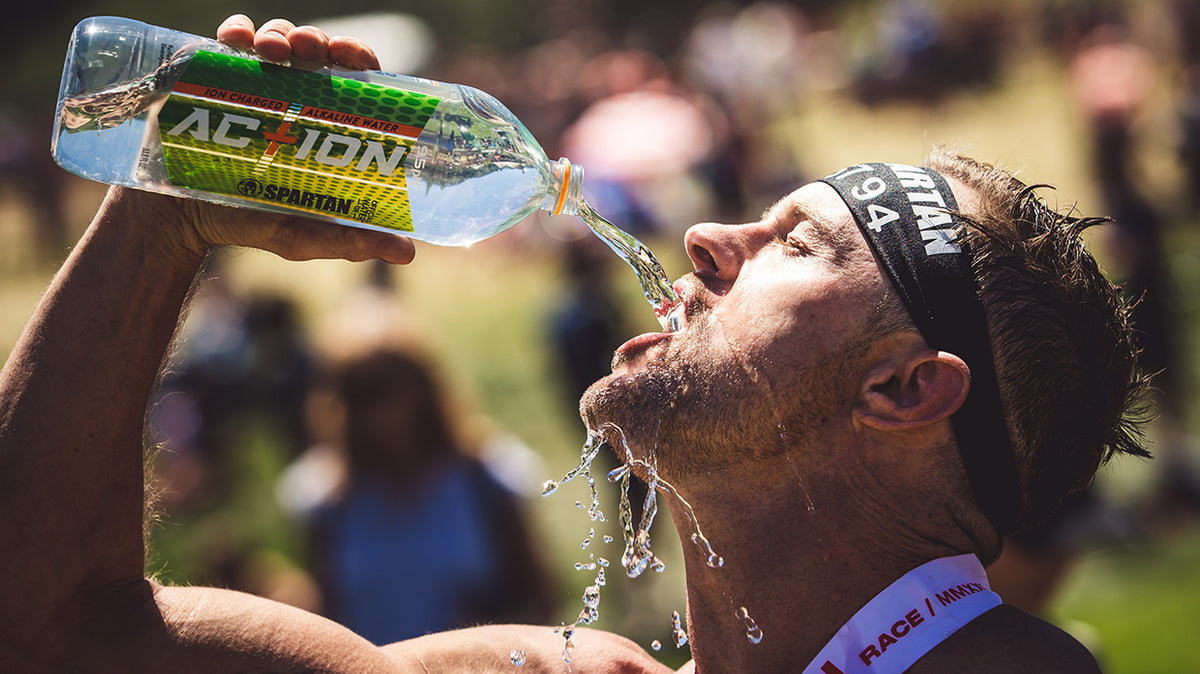The 8 Spartan Rules for Performance Hydration

“Most people only worry about hydration when they’re thirsty,” Melanie Boehmer MS, RD, founder and CEO of Nutrition By Mel, says.
And that’s probably fine for “most people” (the sedentary, inactive set).
Spartans, though, need to be more mindful of their hydration status.
“All of our systems work better when we’re adequately hydrated,” Boehmer says.
Related: This Is Why Hydration Is More Important Than You Think
In fact, a newly-published study of eight men in the journal Medicine & Science in Sports & Exercise found that striking the right hydration balance can improve exercise performance in the heat.
So how can athletes be smarter about their hydration intake to optimize performance? Here, she breaks down what competitive athletes need to know about hydration.
Hydration in Sports Performance: 8 Rules to Live By
1. Always Check Your Pee Color
Dark gold indicates dehydration; if it’s similar in color to pale lemonade, you’re good, Boehmer explains.
2. Follow The 2-4 Rule
Drink 2 to 4 millimeters per pound of body weight two to four hours before your workout or race. For example, that would be about 15 ounces — or almost two cups — for a 150-pound person. That’ll keep you in the pre-hydration “sweet spot.”
3. Skip Water in This One Case
If you’re training at a relatively-low intensity for less than 45 minutes, you can most likely run on empty. But if it’s super hot and/or humid (or you’re just plain thirsty) drink up.
Related: This Is the Key to Keeping Energy and Electrolytes High When Training
4. Don’t Be a Chugger
For anything longer than 45 minutes, Boehmer recommends drinking 3 to 4 cups per hour.
“Think about those little dixie cups of water — that’s your sip,” Boehmer says. “The key with hydration is starting early and drinking often.”
5. Add Carbs Strategically
For higher-intensity and longer sessions, consider adding 30 to 60 grams of carbohydrates per hour. Boehmer says to look up products on the NSF or Informed-Choice websites to be sure you are using a third party-tested supplement.
6. Consider the Swish and Spit
Putting a little sports drink in your mouth, swishing it around, then spitting it out could actually make a difference. A review published in the journal Nutrients suggests that just the taste of carbs can be enough to light up the brain receptors involved with reward, and therefore can boost performance.
7. Be Mindful of Sodium
Pre-formulated gels and sports drinks (like those mentioned above) contain both carbs and sodium to keep your electrolyte levels in check. Most likely, that means you don’t need additional sodium. However, every athlete is unique, so if you notice that you’re a “salty sweater” (there’s visible salt on your skin post-workout), that might be a sign you need additional salt.
If you're not losing tons of sodium, though, don't overdo it on replenishing. A great alternative to plain water, AC+ION Ion Charged Alkaline Water is filtered and purified multiple times to ensure no added sodium. Plus — with a pH of 9.5 —you'll replace plenty of electrolytes with this easy drink.
8. Train Your Gut
Just like you train your muscles, you need to give your digestive system a little practice. Consider purchasing a few different products and using them in varying amounts during workout. Keep a journal or a note in your phone to jot down what works and what doesn’t. That way, when it’s time to race again, you’ve got your unique strategy dialed in.





